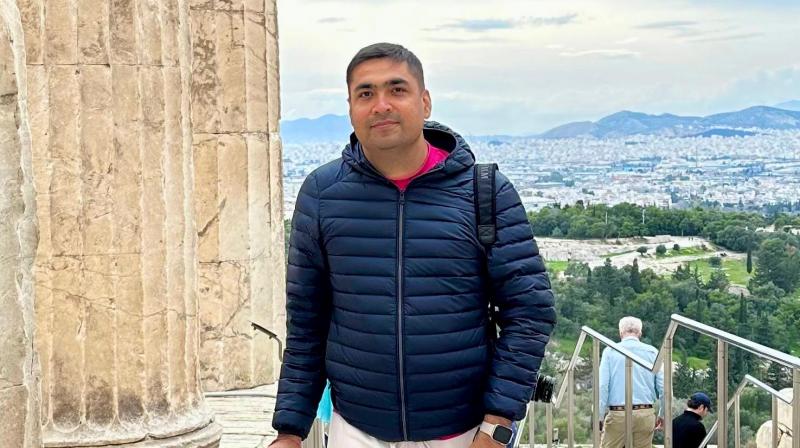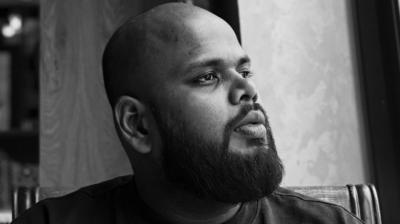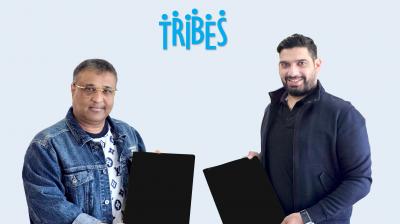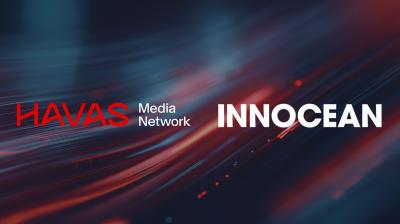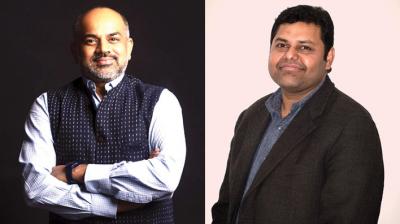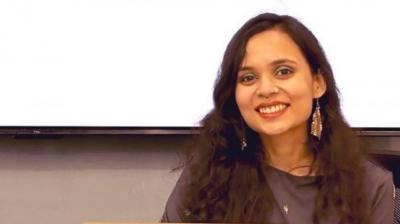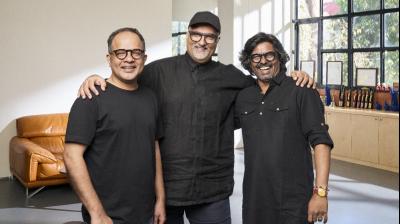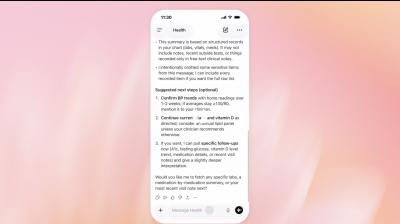I’m a self-taught ad film director. Everything I know about advertising, I’ve learned on the job. And perhaps because I’ve rarely had the opportunity to be formally trained, I deeply value every little program or workshop that imparts knowledge and leaves you just a bit re-wired.
With that intention, I booked a few workshops through the Goafest 2025 portal and arrived with my small team from Lifafa Studios. Little did I know that what lay ahead would be a rollercoaster of learning from the best—and, more importantly, a beautiful feeling of knowing more.
The workshops were held on the first floor of the venue, slightly cut off from the rest of the fest. It was tucked away, quaint and quiet, giving me a chance to hide out and focus.
I was eager to hear Raj Kamble speak about advertising. His session was scheduled for 11 am on day two. We rushed in 15 minutes late, bursting into the theatre room—only to find out there had been a last-minute change. Ashish Khazanchi (Enormous) was taking the session instead. The workshop hadn’t started yet, and we ended up having a candid conversation while people trickled in.
Soon, the discussion veered into a topic that’s been looming large: AI. Just before Goafest, the launch of Veo 3 and its talkie video capabilities had sparked conversations across the industry—with a healthy dose of concern. Here we were, now, deep in debate about how AI is transforming the filmmaking process—and whether we’re all about to be replaced.
Ashish shared how a brief that used to take three hours to crack can now be done in five minutes with a little help from AI. The results speak for themselves. AI is no longer a distant possibility—it’s the writing on the wall. We debated whether to resist or embrace it, and Ashish put it perfectly: 'AI is a beast—if you don’t get on it, it will get on you.'
While he presented several insightful case studies, my favourites were 'Ink of Democracy' and 'Lucky Yatra' we kept coming back to AI. As he spoke, a question started to surface: Are we about to change our way of thinking forever? Are we on the verge of rediscovering our creative beliefs—just like when the internet first arrived? Or is this just another survival panic that will fade as we revert to our old patterns?
The next workshop I attended was led by Amogh Dusad from Amazon MX Player. The room was packed. I struggled to open the door—it was so crowded, people were standing all the way to the edge. Somehow, I squeezed in. Amogh walked us through the strategy for a brand new show by showing us the trailer and invited the audience to brainstorm potential brand collaborations. This session was practical and results-driven, focusing on innovative branded content and clear metrics like content performance and unique selling points.
For me, it was a valuable opportunity to understand how digital content platforms operate and the tools needed to pitch. After the workshop, I bumped into an old MTV colleague—who turned out from the Amazon MX player team, and was kind enough to explain the process of pitching a show to Amazon MX Player. He even suggested I make a one-minute AI-generated video for my pitch. I was stunned. In one session, I’d learned both the branding essentials and how to potentially get something made. I couldn’t help but ask myself: 'Could this be the beginning of us using AI like never before? Could we be the first movers?'
I also spent a good part of day two and day three attending the D&AD workshops led by Nick Eagleton. Two sessions, in particular, stayed with me. The first was 'Storytelling: The Fundamentals'. Nick began by showing us a series of Nike UK commercials, and Nike Londoner made a lasting impact on me. He broke down the anatomy of a story—conflicts, consequences, and beginnings—and classified narratives into personal, interpersonal, and intrapersonal categories. Viewing storytelling through this kind of granular lens felt both refreshing and enlightening.
In a lovely, candid moment, he invited us to share a conflict from the past week—personal or otherwise. Then, he gave us a powerful storytelling tip: Replace 'and then this happened' with 'therefore' or 'but'.
Those small connectors—conflict and consequence—are what drive narrative. The room was divided into two groups and we crafted stories together, one line at a time, using “therefore” and “but.” The results were sarcastic, hilarious, and surprisingly profound.
What struck me most was how Nick continually returned to a core idea: While AI is powerful and evolving, it still stems from the human mind. Without human thought, AI is nothing. I attended three out of four of Nick’s sessions, and after each one, I walked away wondering: 'Can I tell stories better? Can I go deeper, find more truth, more uniqueness in what I do?'
And maybe that’s the point of a workshop—not just to give you answers, but to help you ask better questions.
P.S. Senthil Kumar’s 'Every Second Counts' workshop and Ram Madhvani’s 'The Hero’s Journey' were both exceptional. They left our team enlightened, inspired, and overjoyed.

.jpg)
